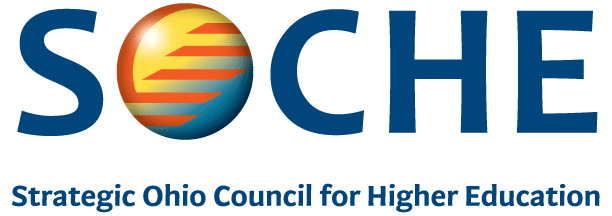
As a workforce development and higher education professional, I spend my day working to help students find careers that match their talents and interests. This calling may not seem complicated, but discovering individual talents and passions can be challenging, especially without appropriate guidance. I realized my interests, talents, and eventually my career path after many internships, classes, advice, and reflection.
Math and science came naturally to me during my school years, and I earned consistent A’s without much effort. I enjoyed my high school biology courses because of my teacher’s method of education. She demonstrated how biology is a part of daily life, making the course exciting while imparting the essential concepts.
The combination of my high school biology teacher’s influence and my A’s in math and science sparked my interest in Medical School. My parents and counselors encouraged me to pursue medical-related internship experiences during high school and college because they knew the importance of on-the-job experiences in selecting a career.
I worked as a candy striper at DeGraff Memorial Hospital in upstate New York. Interacting with patients in the hospital was my favorite part of the job. I found that connecting with patients personally was more interesting than watching the medical procedures. I loved learning about patients’ families and lives through our conversations. My interest in speaking with patients was a strong indicator of my future.

I also served as a research assistant in a laboratory at the Roswell Park Memorial Cancer Institute, researching leukemia cells. This job helped me identify my joy for learning new things, diving into the literature to discover previous findings on similar topics. My love of learning was another strong indicator of my future.
My last medical work-based learning experience was shadowing a Primary Care doctor and sat in on multiple appointments. I was fascinated with his rapport with patients and his vast medical knowledge, but when he handed me a pair of scissors to remove stitches, I politely declined. Once again, I was more fascinated with his interactions with patients than the medical treatment. Yet again, my work experience was showing me my future.
My on-the-job experiences kept me interested in medical school, but I hit a wall taking organic chemistry and calculus III in the next year of college. I took my first psychology elective in my sophomore year, and I fell in love with the course material. I devoured as many psychology courses as possible, and after another internship, I solidified psychology as my new pathway, eventually becoming a Ph.D. Psychologist.

My internships and my coursework, like most students, were integral to discovering my new career pathway. Published research papers about career selection discuss the value of assessment and experiential learning, and both educators and employers assist students in determining their career pathway.
Educators are essential in guiding students to achieve academic milestones and to determine their careers post-graduation. Communities depend upon educators to expose our students to a wide range of academic subjects and to explain how these subjects relate to real-world employment.
Educators need employers to partner with them to expose students to different careers using multiple methods like job shadow programs, career fairs, classroom visits, mentoring, science fair judging, internships, co-ops, apprenticeships, and extracurricular activities. Students want and need to understand every facet of a potential career. Employers that explain their career opportunities to students tend to have better luck recruiting new talent to a company or industry.
Be open with students about their careers of interest. Students need an understanding of what they can expect when choosing a career. Discuss their future colleagues, lifestyle, schedule, salary opportunities, the potential for professional growth, impact, classes, minimum degrees, career security, etc.

- Work-life balance: Help students understand how you balance your personal life with your job. Explain the typical hours required to be successful in the position and how they can best enjoy hobbies outside of their workday. Let them know if their job of interest will allow them to celebrate family milestones or require them to work through birthdays, anniversaries, etc.
- Time for fun: Students want to know whether a career will allow for leisure activities or if they will have to find time outside of their job for fun experiences.
- Job security: Share if the career is subject to slight fluctuations in the economy and politics or if the profession tends to remain stable over time.
- Job impact: Many students find passion in the potential help that their work may bring others, rather than the working process itself. The long-term results of the daily activities in the career are essential to explain to students as they are selecting their career pathway. Students are more likely to choose a career where they know they make a difference and have engaging and exciting work.
- Minimum classes and degrees: Inform students of the pathway to their chosen career, including any critical classes and different career levels. For instance, the field may have levels for high school graduates, associates, bachelors, masters, and post-doctoral degrees.
- Career reputation: Students are concerned with the public reputation of their career of interest. Be transparent about respected professions like nursing, military, and teaching, and if they might have a difficult time managing their reputation in a particular field.
- Schedule flexibility: Having the opportunity for a flexible work schedule is key to students. The current generation grew up with online school, Facetime, Zoom, and other platforms. Students may want to discuss the opportunity to work flexible hours in a profession.
- Workforce demand: Students are interested in the job market for their career of choice, such as whether the workforce has a continual demand for this occupation.
Employers can use the aspects that attracted them to the industry as a jumping-off point when sharing their career opportunities with students. Showing passion for a career is inspiring and an excellent tool for bringing new talent into a workplace. Communities that work together to build their next generation of workforces can expect excellent outcomes. Our students and future employees are worth the time and effort. We need to communicate to students that their future is our concern and assist them in making the best decision for their future.
If you are interested in hiring an intern, contact Patty Buddelmeyer at patty.buddelmeyer@soche.org or (937) 258-8890, or visit www.socheintern.org.


